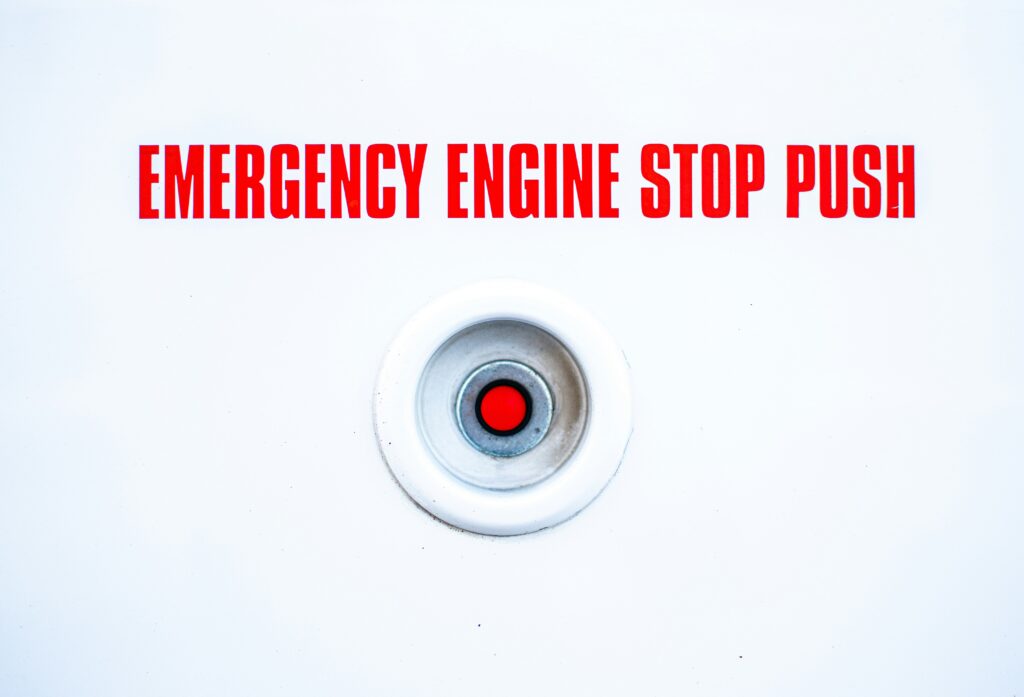I’ve spent years watching people’s eyes glaze over the moment someone mentions GDP or fiscal policy.
You’re probably here because you’re tired of feeling lost when the news talks about the economy. Or maybe you just want to understand why your paycheck doesn’t stretch as far as it used to.
Here’s the truth: economics isn’t complicated. It’s just been explained badly.
I created this economy guide dismoneyfied to cut through the confusion. No textbook definitions. No academic theories that don’t apply to your life.
This article breaks down the economic concepts that actually affect you. I’m talking about the stuff that touches your grocery bill, your rent, and your savings account.
We focus on translating what’s happening in the economy into what it means for your money. That’s what we do best.
You’ll learn what inflation really does to your wallet. How interest rates change your borrowing costs. Why the job market matters even if you’re already employed.
No jargon. No fluff. Just the economic basics you need to make better money decisions.
Core Concept #1: Supply and Demand – The Engine of Every Price
You already understand supply and demand.
You just don’t realize it yet.
Every time you’ve complained about concert ticket prices or wondered why gas costs more in summer, you’ve bumped into this concept. Most finance sites will throw graphs and curves at you. They’ll talk about equilibrium points and market clearing prices.
I’m not doing that.
Here’s what supply and demand actually means. When there’s a lot of something and nobody wants it, prices drop. When there’s barely any of something and everyone wants it, prices spike.
That’s it.
Think about limited-edition sneakers. A brand drops 500 pairs. But 50,000 people want them. What happens? Prices go through the roof. People camp outside stores or pay resellers double (sometimes triple) the original price.
Now think about a regular sneaker that’s always in stock at every mall. Same brand, decent quality. But you can buy it anytime. The price stays steady or even drops during sales.
Same principle applies to everything you buy.
Gas prices climb in summer because more people drive on vacation. Demand goes up while supply stays roughly the same. Winter coats go on clearance in March because stores need to move inventory (high supply) and nobody’s thinking about cold weather anymore (low demand).
Most people miss the timing on big purchases because they buy when they need something. But if you understand this basic relationship, you can plan ahead.
Need a new TV? Wait until right after the Super Bowl when demand crashes. Looking for gym equipment? February is your month, once New Year’s resolution crowds give up.
The economy guide dismoneyfied approach is simple. Watch what everyone else is doing, then do the opposite when it makes sense.
Here’s something nobody talks about. Supply and demand doesn’t just affect what you buy. It affects what you can charge too.
If you freelance or run a side business, your rates should shift based on your availability and client demand. Booked solid for three months? Raise your prices. Calendar’s empty? Maybe it’s time to run a promotion.
You don’t need an economics degree to use this. You just need to pay attention to patterns and act before everyone else catches on.
Core Concept #2: Inflation – Why Your Money Buys Less Over Time
You’ve probably noticed it.
That coffee you bought for three bucks five years ago? Now it’s five. Your grocery bill keeps climbing even though you’re buying the same stuff.
That’s inflation at work.
Here’s what it actually means. Inflation is the rate at which prices for goods and services rise. And when prices go up, your money buys less. Simple as that.
A hundred dollars today won’t buy what a hundred dollars bought in 2015. It won’t buy what a hundred dollars will buy in 2030 either (assuming prices keep rising).
Now some people say inflation doesn’t matter much if you’re just holding cash for emergencies. They figure a few percentage points here and there won’t hurt.
But that thinking costs you real money.
Let me show you why this matters more than almost anything else in personal finance.
The Real Cost of Ignoring Inflation
Your savings account probably pays you less than 1% interest right now. Meanwhile, inflation has been running between 2% and 8% depending on the year (the Fed targets 2% as healthy).
Do the math. You’re losing purchasing power every single year.
Think of it like a leaky bucket. You’re adding water (your investment returns) but there’s a hole in the bottom (inflation). If the leak is bigger than what you’re pouring in, your bucket empties over time.
That’s your retirement account if you’re not beating inflation.
I recommend you check the economy guide dismoneyfied for current inflation data. It gets updated regularly and helps you see what’s actually happening right now.
What You Should Do About It
First, accept that keeping all your money in a regular savings account is a losing strategy. You need returns that beat inflation or you’re going backwards.
That means investing. Stocks historically return around 10% annually (though past performance doesn’t guarantee future results). Bonds return less but still typically beat inflation over time.
Second, understand that inflation isn’t all bad.
If you’ve got a fixed rate mortgage at 3%, inflation actually works in your favor. You’re paying back that loan with dollars that are worth less than when you borrowed them. Your payment stays the same but represents a smaller chunk of your actual purchasing power.
Same goes for student loans or car payments with fixed rates.
Here’s what I tell people to do right now. Calculate your real return on every investment. Take your return percentage and subtract the inflation rate. That’s what you’re actually earning.
If that number is negative, you’re losing money even if your account balance looks bigger.
Make sure at least 70% of your long term savings is in assets that historically beat inflation. For most people that means stocks, real estate, or inflation protected securities like TIPS.
Keep your emergency fund liquid (you need access to it). But everything else? It should be working harder than inflation is working against you.
That’s not optional if you want to retire someday.
Core Concept #3: Interest Rates – The Cost of Borrowing Money

Let me break this down for you.
Interest rates are the price you pay to borrow money. That’s it. When you take out a loan, the lender charges you a percentage of what you borrowed. That percentage is the interest rate.
Think of it like rent. You’re renting someone else’s money for a while. The higher the rate, the more expensive that rent becomes.
But here’s where it gets interesting.
Interest rates work both ways. When you save money in a bank account, you’re actually lending your money to the bank. They pay you interest for that privilege (though let’s be honest, most regular savings accounts pay almost nothing).
Why This Actually Affects Your Life
Your credit card? That 19% APR you’re paying is an interest rate.
Your car loan? Interest rate.
Your mortgage? You guessed it.
When rates go up, these payments get more expensive. A 30-year mortgage at 3% looks very different from the same loan at 7%. We’re talking hundreds of dollars difference every month.
On the flip side, your high-yield savings account finally starts paying decent returns when rates climb. That money sitting in your emergency fund actually grows a bit.
What This Means for Your Money
Here’s something most people miss about interest rates and investing.
When rates rise, bonds become more appealing. A bond paying 5% starts looking pretty good compared to the stock market’s ups and downs. It’s safer and the return is guaranteed (assuming the issuer doesn’t default).
This is exactly when to change investment strategy dismoneyfied becomes relevant. You need to watch these shifts.
Stocks often take a hit when rates go up. Why? Because companies have to pay more to borrow money, which cuts into their profits. Plus, investors start moving money into those safer bonds I just mentioned.
Here’s what you need to remember:
- High interest rates make borrowing expensive and saving more rewarding
- Low interest rates make borrowing cheap but your savings grow slower
- Rate changes affect everything from your mortgage to your investment returns
The economy guide dismoneyfied shows us that understanding this one concept helps you make smarter calls about debt and where to park your money.
You don’t need a finance degree to get this. Just remember that interest rates are the price tag on money itself. When that price changes, everything else shifts with it.
Core Concept #4: Gross Domestic Product (GDP) – A Country’s Financial Report Card
You’ve probably heard economists throw around GDP numbers on the news.
But what does it actually mean?
Here’s the simple version. GDP is the total value of everything a country produces in a year. Every car built. Every haircut given. Every app developed. Add it all up and you get GDP.
Think of it like this. If the country were a person, GDP would be their annual salary. When that number goes up, the country can afford more. When it drops, things get tight.
Why You Should Care About GDP
I know what you’re thinking. Why does some big national number matter to me?
Because GDP growth affects your wallet directly.
When GDP is growing, companies make more money. They hire more people. They raise wages to compete for workers. The job market gets better and your paycheck has a better chance of going up.
When GDP shrinks? That’s a recession. Companies cut costs. Jobs disappear. Pay raises freeze.
Some people say GDP doesn’t tell the whole story. They argue it misses things like quality of life or environmental costs. And they’re right. GDP isn’t perfect.
But here’s what they miss.
GDP is still the BEST single measure we have of economic health. It’s not the only thing that matters, but it matters a lot.
If you’re following the economy guide dismoneyfied, you’ll see GDP mentioned constantly. That’s because it connects to almost everything else. Interest rates, inflation, employment. They all tie back to whether the economy is growing or shrinking.
The bottom line? When GDP goes up consistently, your financial opportunities usually improve. When it falls, you need to be more careful with your money.
From Confused to Confident – Using Economics for Your Benefit
You don’t need to feel lost when economic news comes on anymore.
I’ve shown you the basics that matter. Supply and demand. Inflation. Interest rates. GDP. These aren’t abstract ideas reserved for economists in suits.
They’re the forces shaping your wallet right now.
Getting shut out of financial conversations is frustrating. You know it matters but the jargon makes you feel like an outsider. That stops today.
These concepts work because they’re simple once you strip away the complexity. You can use them to decide when to buy that car, whether to lock in a mortgage rate, or where to put your savings.
Here’s what I want you to do: Start watching for these patterns in your daily life. Notice when prices jump at the grocery store (that’s inflation). See how interest rate changes affect your credit card statement.
Then take one action. Maybe you adjust your budget. Maybe you move money into a higher-yield account. Maybe you finally start that investment plan you’ve been putting off.
economy guide dismoneyfied gives you the knowledge you need to make these calls with confidence. The rest is up to you.
Your financial world just got a lot less confusing. Homepage.


